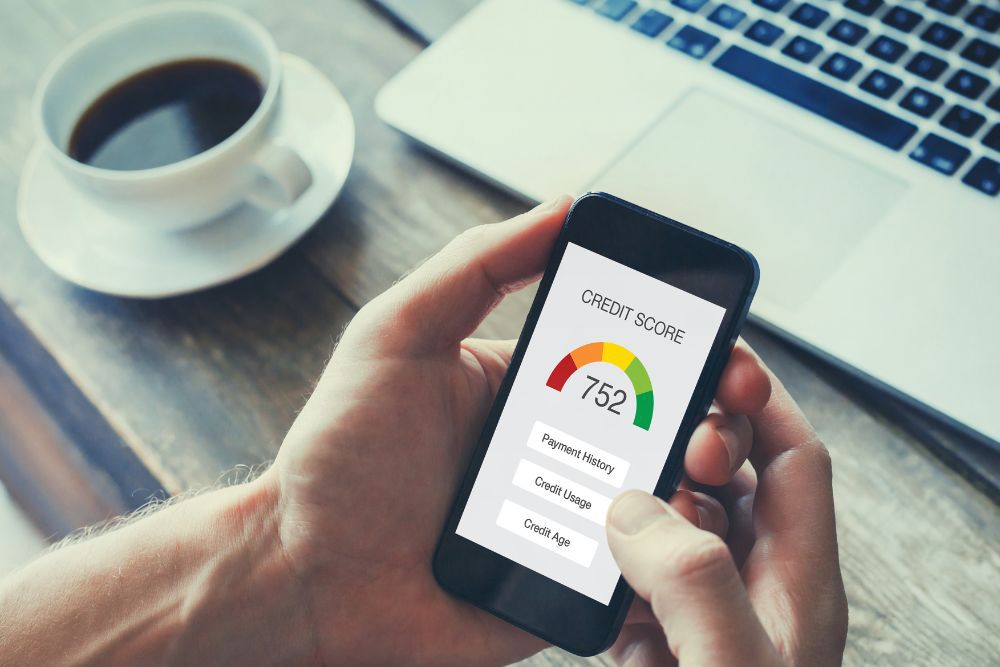

Does Personal Credit Score Affect Business Loans In Singapore?

Most people need loans at some point, whether it’s for a credit card, car, home, or a business. Your personal credit rating, found in your credit bureau report, directly influences your ability to get approved. Even if your business is profitable, a director’s poor personal credit score can sink a business loan application.
Know your score before you apply. Don’t wait until you need a loan to check your credit score. Be proactive and stay informed. To understand your creditworthiness, obtain your credit bureau report from Singapore’s credit rating agencies. This is the same report that banks and lenders use to assess your financial reliability.
Before applying for that crucial SME loan, make sure your credit score is in good shape. This simple step increases the likelihood of getting your business the funding it needs.
What is a Credit Score
Your credit score is a numerical representation of your creditworthiness. Lenders use this score to assess how likely you are to repay a loan. In Singapore, the Credit Bureau Singapore (CBS) calculates your score on a scale from 1000 to 2000.
- 1000: High risk of loan default (HH Risk Grade)
- 2000: Low risk of loan default (AA Risk Grade)
CBS doesn’t decide whether you get a loan. They provide lenders with your credit history. Lenders also consider other factors like your income, active credit lines, and employment history when making loan decisions.
Why Credit Score Matters?
Your credit score is way more important than you might think. It determines how easily you can get loans and how much interest you’ll pay.
A good score opens up a world of possibilities – lower interest rates on everything from car loans to mortgages. And forget about renting forever because you can’t qualify for a home loan – a strong credit score means getting your own place.
If you’re a business owner, it can even make the difference when trying to secure funding for your next project.
Does a Business Loan Application Affect My Personal Credit Score?
Generally, a business loan taken under your business’s name won’t directly impact your personal credit score. The loan is associated with the business, not you as an individual. However, the application process itself can have a temporary effect.
When you apply for a business loan, lenders will often check your personal credit history as part of their risk assessment. Multiple loan applications within a short timeframe can lead to several inquiries on your credit report, temporarily lowering your score.
It’s important to be strategic about business loan applications. If your credit score rebounds after a short dip, the impact should be minimal.
How to Improve Your Credit Score
If your credit score needs some love, don’t worry. Simple changes can make a big difference. Here’s how to improve your score and make yourself more attractive to lenders:
1. Practice On-Time Payments
The most important factor in your credit score is how reliably you pay your bills. Make sure to pay at least the minimum amount due every month, on or before the due date. If you can pay the full balance, even better.
2. Be a Credit Report Detective
Even the best systems make mistakes. Get your credit report and carefully look for errors, such as missed payments or debts you’ve already paid off. Report any issues to the credit bureau right away.
3. Take a Break from Loan Applications
Every time you apply for a loan, it leaves a mark on your credit report. Too many inquiries in a short period can suggest financial trouble. Space out your applications if possible.
4. Stick to the Plan
Improving your credit score takes focus. Create a budget, track your spending, and avoid impulse purchases. Set up automatic payments so you never miss a due date.
5. Use Your Credit Wisely
Having credit is important, as it builds your credit history. However, don’t just get credit cards for the sake of it. Use them responsibly and pay the balances down as quickly as you can.
6. Manage Your Credit Limits
Having multiple credit cards with high limits can work against you, even if you don’t use them much. Consider requesting lower limits or canceling cards you rarely use.
Improving your credit score is all about consistency and responsible spending. Follow these steps carefully, and you’ll see the results in your score!
The Bottom Line
Your credit report might seem insignificant, but it’s vital for securing business loans. Don’t miss out on opportunities due to a poor credit score. Proactively manage your credit history and regularly review your report to position your business for optimal borrowing power.
Consistently pay your bills, keep your credit card balance low, and rectify any errors on your credit report.
Taking responsibility for your financial situation demonstrates to potential lenders that you are a trustworthy borrower. Remember, you can use a good credit score to secure personal loans as well as best business loan options in the future.
Ready to explore business loan options? Connect with Capitall’s consultants now.

































































































